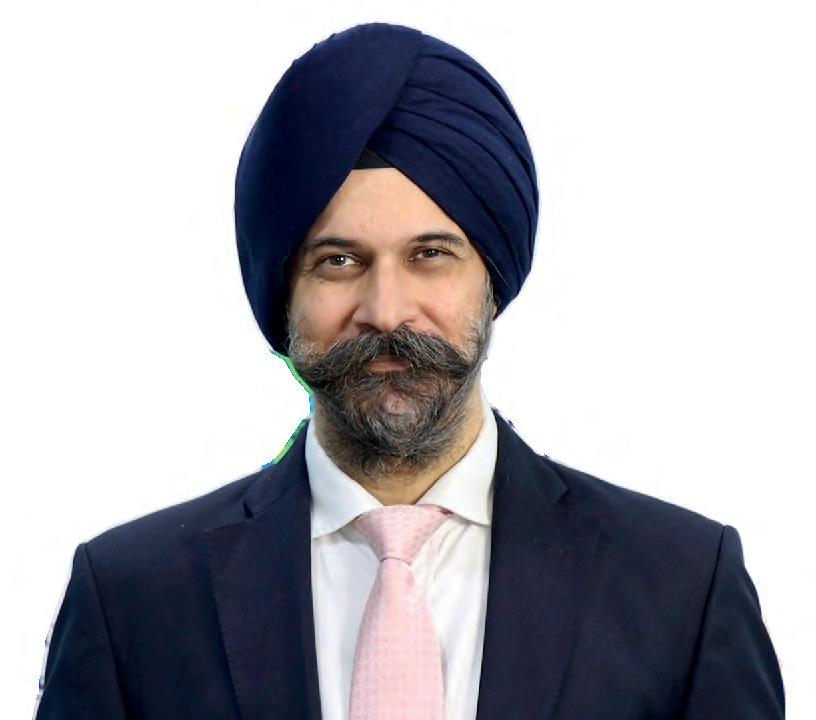
Q. Why a standalone AI university?
A. In 2018, I was attending a Quacquarelli Symonds [QS] conference and I heard professors from Stanford and MIT discussing their universities working on some crazy and innovative things on AI and how it's dramatically changing businesses. I was fascinated with the potential of machines and how they can do mundane tasks.
At that point, artificial intelligence [AI] was not as popular as it is now. Initially, we were a business school that wanted to go to a multidisciplinary world. But later, we thought of a university focussed on AI because it could transform society, businesses and professions. Further, through the years, we have witnessed the transformation. We had yet to hear of ChatGPT or large language models back then. But now these are commonly used.
Q. How innovative will teaching be at the university?
A. The vision is to create leaders who will be ethical and responsible and contribute to society. As AI is an integral part, we have thought about how we can transform the lives of our students and careers. Therefore, in the first year students will have foundational learning on AI, machine learning [ML], internet of things [IoT] and virtual reality [VR] or augmented reality [AR] and mixed reality [MR]. We want to equip students with the potential of these technologies. And this goes for every field, whether psychology, commerce, or science. These subjects are important because these technologies will transform how we live.
We foresee that only a few students will be excited to learn and others might want to know the basics of these technologies. In the third year, all students have to work on Al's impact on social sciences and liberal arts including implications for and applications in these fields.
This story is from the July 2023 edition of Careers 360.
Start your 7-day Magzter GOLD free trial to access thousands of curated premium stories, and 9,000+ magazines and newspapers.
Already a subscriber ? Sign In
This story is from the July 2023 edition of Careers 360.
Start your 7-day Magzter GOLD free trial to access thousands of curated premium stories, and 9,000+ magazines and newspapers.
Already a subscriber? Sign In

100 Best Business Schools In The Country
For Careers360's 2025 B-school ranking, we ranked 100 public and private management institutions and rated over 500, dividing them into zones and city clusters

'We have a completion rate of 80-90%'
During an interaction, Mayank Kumar, co-founder and managing director of upGrad, spoke to Sheena Sachdeva about new courses in accounting and management, the profile of learners, trends in online MBA courses, and more. Edited excerpts from the conversation below

New roles and spaces
Online MBA has helped many working professionals climb up the office hierarchy or even pivot to an entirely new career. But there are challenges.

'Committed to industry-relevant learning'
International Management Institute (IMI), New Delhi, is India's first corporate-sponsored B-school. It offers three PG diplomas in management - the flagship PGDM with 300 seats, as well as human resource management and business and financial studies with 60 each. Himadri Das, director general, IMI, discussed the challenges posed by competition among private business schools, the importance of diversity, and IMI's NIRF rankings with Sanjay. Edited excerpts from the interview.

National Insurance Academy plans expansion to meet rising demand
The National Insurance Academy (NIA), now situated in Pune, was established jointly by the ministry of finance and all the major public sector undertakings (PSUs) in insurance. Originally a training institute for insurance industry professionals, it has been offering a postgraduate diploma in management (PGDM) since 2004 and has placed 100% of its students all through.

The era of MBA in sustainability
As companies are increasingly pushed to meet environmental compliances, management institutes are revamping their curricula with specialised MBA programmes in sustainability or launching new programmes

Despite good record, SRCC's PGDM faces degree hurdle
Delhi University's Shri Ram College of Commerce started its postgraduate diploma in Global Business Operations (GBO) 25 years ago. Principal Simrit Kaur spoke to Shradha Chettri on their effort to convert the diploma into a degree programme, changes required in the National Institutional Ranking Framework (NIRF) and more. Edited excerpts

Managing produce, from farm to plate
Agribusiness managers are in great demand, both on the 'input' side of agriculture - seeds, fertilizer, machinery businesses - as well as in the processing of the 'output'

Creating 'innovators with conscience'
The SP Jain Institute of Management and Research (SPJIMR), Mumbai, has been the top Indian institution in the Financial Times' (FT) Masters in Management rankings for two years in a row. Varun Nagaraj, dean of SPJIMR, spoke to Atul Krishna about what the institute does differently, its plans, the future of business education, and the FT and National Institutional Ranking Framework (NIRF) lists. Edited excerpts below

'Quality management education that is equitable': FMS Dean
The Faculty of Management Studies (FMS) at the University of Delhi (DU) is one of India's premier business schools offering MBA courses at a relatively low cost, compared to most leading business schools in India. Celebrating its 70th year, it is also one of the first university-based business schools. In an interview with Sanjay, head and dean of FMS A Venkat Raman spoke about the functioning of a business school under a central university, challenges, courses and future plans. He also spoke on the Common Admission Test (CAT) and its impact on diversity in student cohorts. Edited excerpts